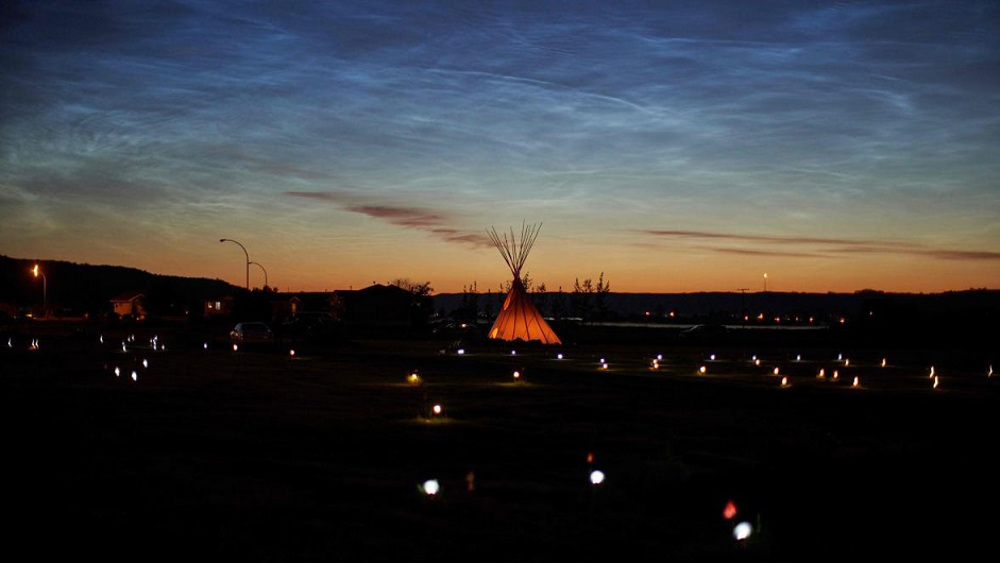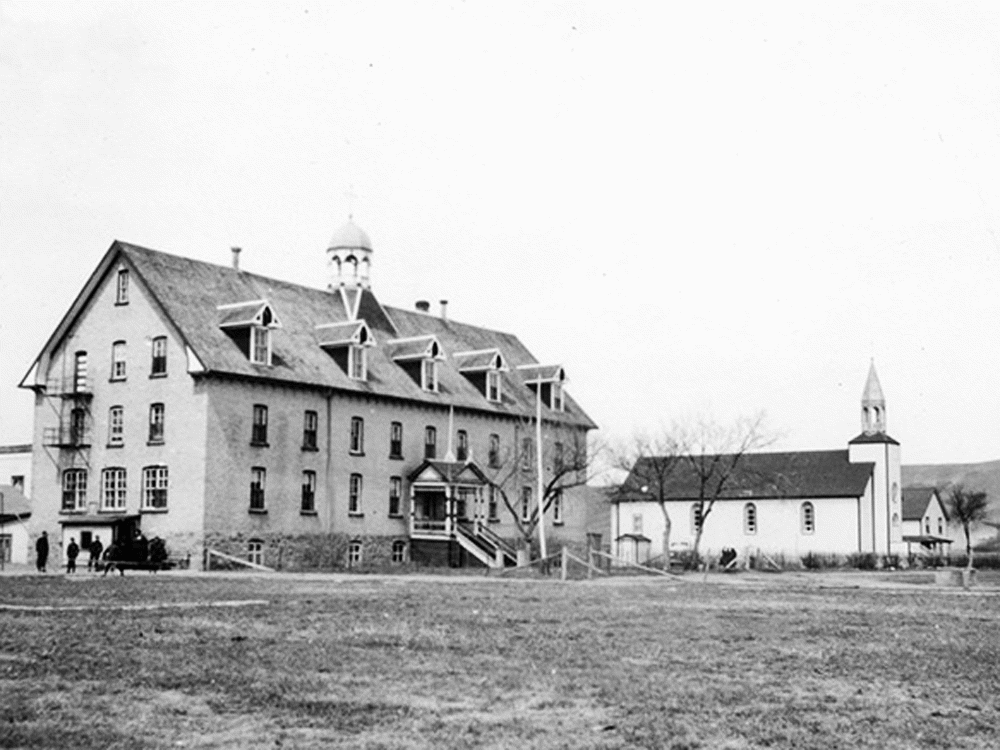
FSIN Chief Bobby Cameron made the request in a press conference on Tuesday, after officials refused to release the residential school file, which is currently at Court of Queen's Bench in Regina, the capital of the western Canadian province of Saskatchewan.
Cameron said the lack of transparency from the Catholic Church and now the court was wrong.
"That information is the property of First Nations survivors and their descendants," he said. "It's beyond me why the Court of Queen's Bench is failing to release this. What are they hiding? We are sick and tired of this cat-and-mouse game."
He said the court's attitude was typical of the institutional racism faced by First Nations people in Canada, adding that the refusal to immediately hand over the documents was re-traumatizing survivors.
"This is a perfect example of the systemic racism we face every day that is deeply rooted and entrenched within the Canadian institutions such as the justice system," he said.
Court officials have confirmed the existence of the document but declined to provide it. The document is said to outline the "in-kind services" that the church allegedly agreed to provide as part of a deal reached with the federal government to compensate survivors of horrific abuse at residential schools in Canada.
Meanwhile, First Nations leaders and legal scholars across Canada as the well as survivors have all asked for the file to be released, arguing that it is a public document. A Sturgeon Lake First Nation elder and residential school survivor said he had no idea what those in-kind services were and that the survivors have a right to know.
"We need to see it. The church was able to stick-handle their way through all this legal wrangling. They got away with it. But no more," A.J. Felix said.
Thunderchild First Nation member Eleanore Sunchild, a lawyer who has represented thousands of survivors, also said, "It would be helpful to see what's on that list. I haven't heard any of my clients obtaining any of those services."
Saskatchewan Court of Queen's Bench Chief Justice Martel Popescul has said the court "has a supervisory role over court records" and that proper procedure is being followed.
Last month, some 750 unmarked graves were found near a former residential school in Canada's Saskatchewan. Also, in early July, nearly 200 unmarked graves were discovered on the grounds of another former residential school in Saskatchewan.
The finds have reopened old wounds in Canada regarding the notorious residential schools, which were mostly operated by the Roman Catholic Church on behalf of the government of Canada during the 19th and 20th centuries.
A former dean at the University of Toronto's law faculty also said a full, immediate disclosure was even more important in light of the recent discoveries.
"We need to do everything possible to give survivors the information they deserve... Do it. Do it quickly. Don't make it more painful for individuals that have already suffered so much," Mayo Moran said.
In all, 130 boarding schools forcibly separated more than 150,000 indigenous children from their families and had them attend state-funded schools in a campaign aimed at forcibly assimilating the minors into Canadian society. An estimated 6000 First Nation children died while attending those schools. Under pressure, the Canadian government formally apologized in 2008.
The Canadian government was in court last month challenging a Human Rights Tribunal ruling that would have made Ottawa individually compensate children and families harmed by what federal officials admit is a discriminatory child and family services system. A federal court ruling is pending.
Police investigating Manitoba residential school abuse claims
Separately on Tuesday, the Manito Royal Canadian Mounted Police (RCMP) said it had launched a "large-scale" criminal investigation in 2011, investigating claims that students were assaulted during their time at a former residential school.
"Due to the many people affected by this investigation as well as the larger social implications, it was determined to be in the public interest to provide as much information on the ongoing investigation as we can," the RCMP said in a news release.
The Fort Alexander residential school, located 125 kilometers northeast of Winnipeg, the capital of the Canadian province of Manitoba, opened in 1905. It was closed by the federal government in 1970.
More than 80 RCMP officers have been involved in the investigation so far, which has involved speaking to more than 700 people across North America.



No comments:
Post a Comment